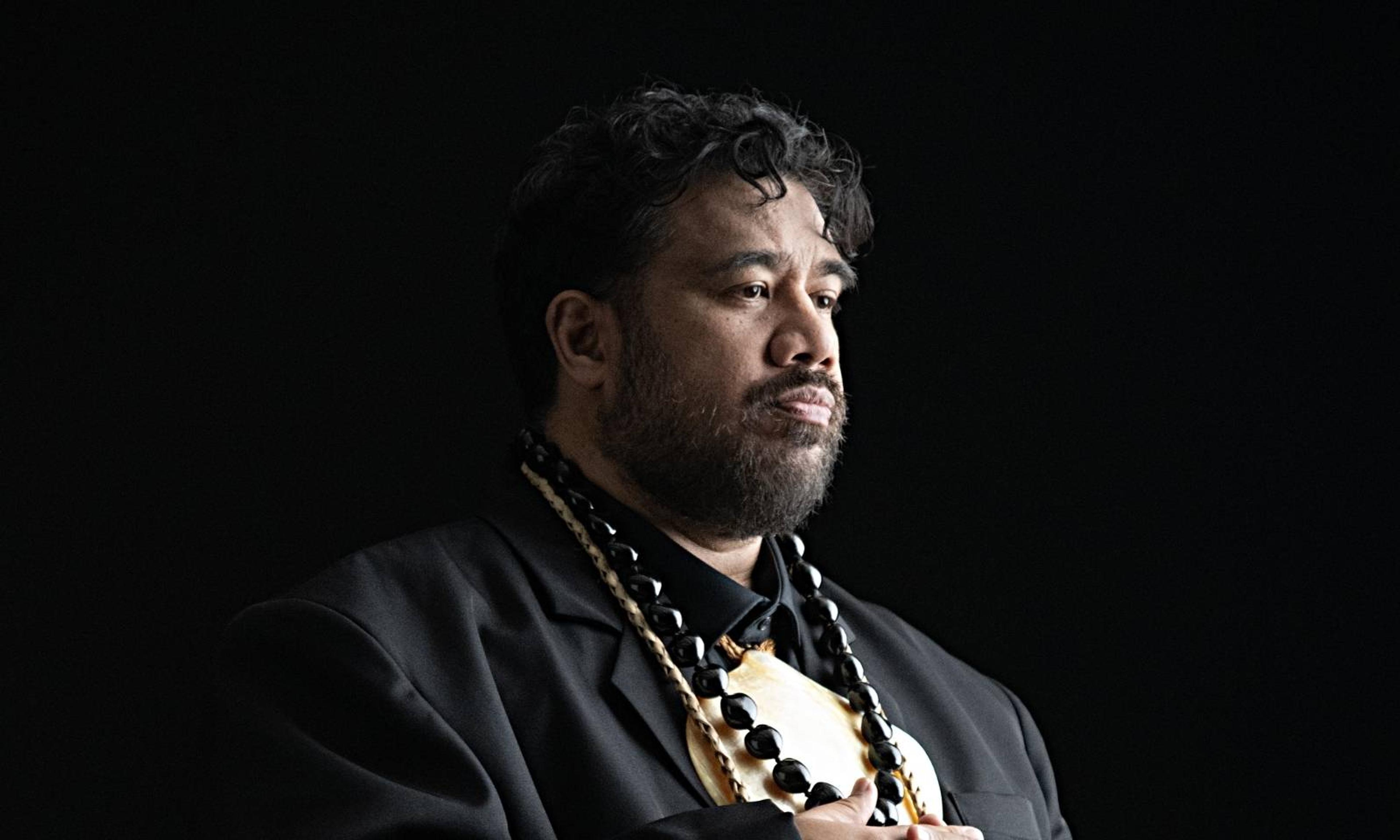

Three schools contacted by PMN News emphasised the vital role bilingual programmes play in nurturing students' cultural identity and academic success. Pictured from left: Stephanie Anich (Māngere East), Tufaina Faraimo (Glenview), Karl Vasau (Rowandale).
Photo/File
Schools struggling with funding cut to Pacific bilingual programmes
Educators are stressing the importance of language and cultural preservation in response to a $1.4 million funding cut to Pacific bilingual language school programmes. This is the final of a two-part series.



Māngere-Ōtāhuhu's future leadership revealed for 2027




Second Apology: Fijian artist’s bold new film demands more for Pacific communities

Māngere-Ōtāhuhu's future leadership revealed for 2027


The Ministry of Education has reduced its Pacific bilingual programme budget by 54 per cent, leaving schools to grapple with the challenge of maintaining their language classes.
Information obtained by PMN News through an Official Information Act (OIA) request reveals that the budget for the Ministry of Education’s Pacific Bilingual Language programme is $1.2 million in 2024-2025, a cut of $1.4 million from the previous year.
Three schools contacted by PMN News emphasised the vital role bilingual programmes play in nurturing students' cultural identity and academic success.
However, with reduced financial support, these programmes are at risk, forcing schools to seek external funding or reallocate their already limited resources.
Glenview, Rowandale, and Māngere East schools also expressed concerns about the lack of consultation from the Ministry of Education over the cuts and their broader impacts on Pacific language and cultural preservation.
Despite these challenges, educators share a sense of resilience and commitment, determined to support bilingual education as effectively as possible.
The schools recognise that without sustainable funding, the long-term viability of these programmes is uncertain, which could weaken efforts to preserve Pacific languages in Aotearoa.
Glenview School (Porirua)
The Tokelau bilingual unit at Glenview School in Porirua is feeling the effects of this funding cut.
According to Glenview Assistant Principal and Tokelau bilingual teacher Tufaina Faraimo, the cut has forced the school to seek external funding to retain a full-time teacher aide, who is a native Tokelau speaker.
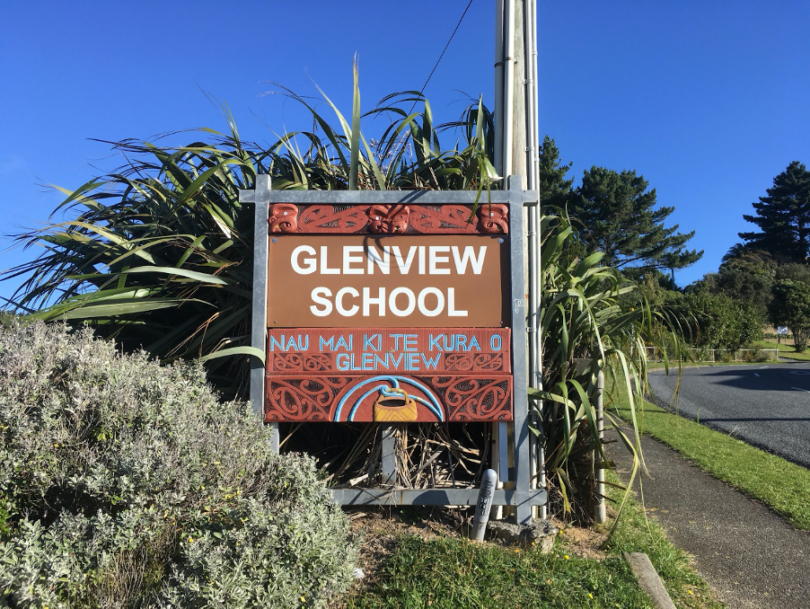
Glenview's Tokelau bilingual unit is seeking external funding to support its teacher aide position. Photo/Facebook/Glenview School Porirua
“We’ve had to seek funding for her outside of the school, which has been one impact and that’s just to make sure we’re fully functioning and able to offer bilingual experience for students in the classroom.”
Faraimo said the school is using its own resources to fund this position, limiting the support available for the Tokelau bilingual unit.
As a result, her time has to be spread more thinly to attend to the school's general needs rather than focusing solely on the bilingual unit.
The Ministry of Education said no consultation with schools, teachers, or Pacific communities was conducted before the funding cuts were implemented.
Faraimo said the lack of consultation left her feeling “disempowered and voiceless in the education system … feeling powerless that we haven’t been able to affect any of that decision-making.”
Despite these ongoing challenges, Faraimo said she was optimistic for the future.
“I think we’re also hopeful that we continue to do it the way we’ve always done it and we just soldier on and do as much as we can with the resources that we have.”
Rowandale Primary School (South Auckland)
Rowandale School in South Auckland operates bilingual units for Niuean, Sāmoan, and Māori languages, relying entirely on the school’s general operations grant for funding.
Principal Karl Vasau said the funding cut mainly affects ministry-level initiatives that assist schools in establishing and sustaining Pacific language programmes.
This includes discontinuing roles such as bilingual facilitators and liaisons, which previously provided guidance and resources to the schools.
While Rowandale is not directly impacted, it maintains its Pacific bilingual language programmes.
“When any school decides to go out on a limb and set up a bilingual unit, it’s a courageous call from the school because we all know that setting this up, the school has to incorporate the costs into its own running costs,” Vasau said.
“And the support we get, whether it be people or whether it be resources from the ministry, is very well received.
“And if the ministry’s gone through and cut funding, it just means that there’s a little bit less support that could come our way.”
“It just means that we have to continue to keep using our own money or have to use it wisely, or if there were programmes that the money was targeted towards, we would have to fund them ourselves,” Vasau said.
“What’s unclear is exactly where that money has been cut from. So schools are pretty much in the dark as to how that is because we’ve just started the year.”
Māngere East School (South Auckland)
While Māngere East School acknowledges the positive impacts of bilingual education, Principal Stephanie Anich expressed concern about the ministry’s decision to cut funding for professional development (PLD) for bilingual teachers.
“Over the last two years, our Pacific bilingual teachers or the teachers who teach in our bilingual units have had regular professional, high-quality professional development,” she said.
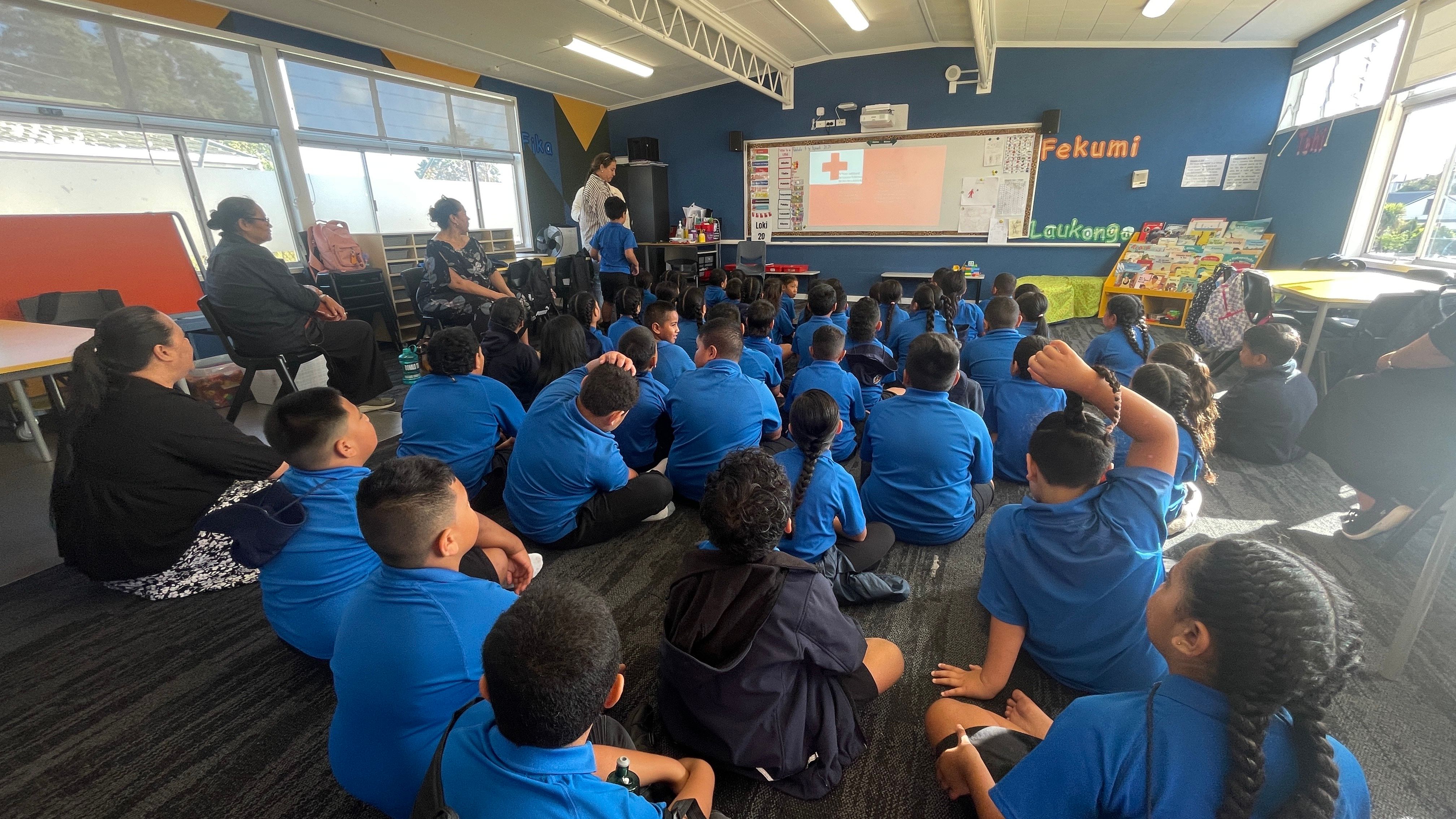
Māngere East School are feeling the impacts of the funding cuts to its early literacy and assessment resources initiatives. Photo/Māngere East School.
“That’s going to be problematic for us because we’ve got new beginning teachers in the bilingual units, and it means that they will miss out on PLD (professional learning and development).
“It will be reliant on those teachers that they work with to pass that knowledge, which is not impossible, but it’s not the same.
“It’s not the same as having the experts work through it with you and then your teachers supporting you when you return from that PLD,” she said.
Māngere East School offers Sāmoan, Tongan, and Cook Islands Māori bilingual units.
While Anich remains optimistic about overcoming these challenges, she acknowledges that they can't continue ongoing funding for these programmes.
“I’m highly confident that we will be able to do that, but it’s not a bottomless pot.
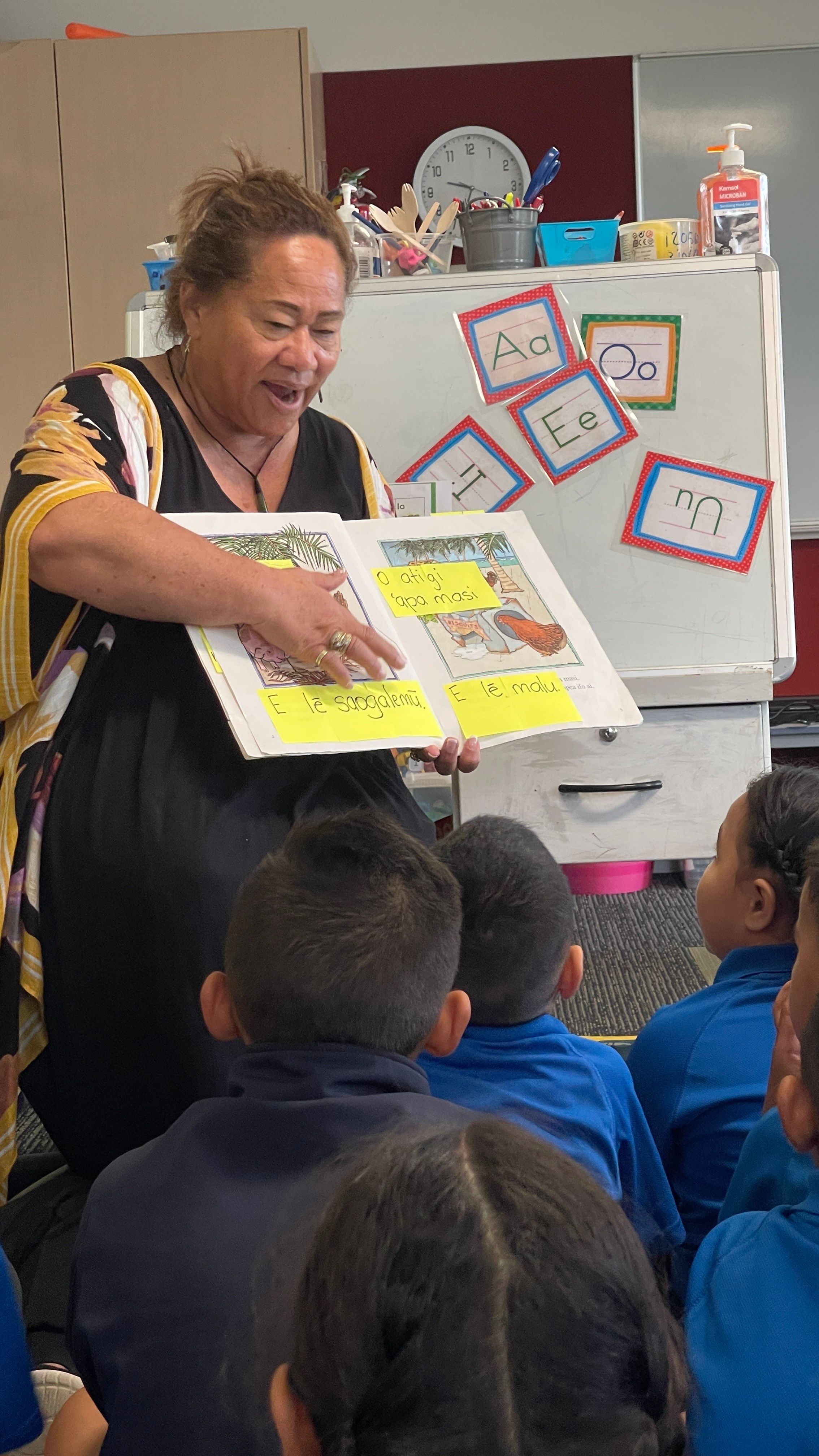
While Rowandale is not directly impacted, it maintains its Pacific bilingual language programmes/Photo/Māngere East School.
“At the moment, I wouldn’t say it was stressful but when I talk to my staff, you can’t keep funding things forever. The pot will gradually deplete.”
In addition to cuts in professional development, funding for assessment resources has also been reduced, affecting collaboration with other schools and the development of bilingual assessment tools, Anich said.
“With that funding being cut, it means that they will have to do their own assessments in their own time, or we will have to find the resources to make that time for them.”
Anich said that cuts to early literacy resources, including dual-language e-books, could force teachers to return to creating their own materials.
“It was becoming easier for our teachers in English and bilingual programmes to pick up books that were relevant, that had dual languages in them.
“At the moment, we’re quite well-resourced, but again, two, three, four years down the track, if that’s not maintained, then we're back to what felt like the dark ages, where the poor bilingual teachers were having to write their own books, make copies in English, hide the English, do the translations over the top … huge workload for them.”
Fostering Pacific identity and cultural preservation
Anich emphasised the transformative impact of Pacific bilingual language programmes on Pasifika students.
Faraimo said students who choose the bilingual path often become outstanding contributors to society.
“There have been amazing impacts on young people who choose to take the bilingual route in education. They become outstanding citizens of New Zealand and they are just able to break through the stereotypes of what Pacific young people can do.”
Vasau urged the Government to prioritise first-language learning.
“I know first language learning is very important, and New Zealand is in a very critical position where large communities of our people live in New Zealand.
“And if we look at an endangered language like Niue, the critical mass of Niueans is in New Zealand. So, it makes sense to support the Niuean community here to save their language.
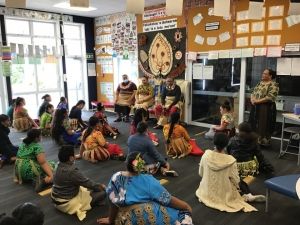
Students celebrate Tongan Language Week. Photo/file
“Otherwise, if we’re not going to make that investment or make it easier for schools to go down this path, it’s just going to get weaker and weaker,” Vasau said.
Anich also stressed the importance of preserving Pacific culture and identity within schools.
“By them (children) hearing and seeing their culture, being valued at school and visible, I think Palagi or other cultures who have never experienced that might think it’s nothing, but it’s really important,” Anich said.
Ministry committed to supporting Pacific learners
Pauline Cleaver, the Ministry of Education’s Curriculum Centre Acting Hautū (leader), said the ministry is committed to supporting Pacific learners and languages throughout the education pathway.
“It (ministry) continues to invest in Pacific learners and provides a range of supports and resources for learning through Pacific languages, including Gagana Sāmoa, Lea FakaTonga, Vagahau Niue, Te Reo Māori Kuki ‘Airani and Te Gagana Tokelau. All five of these Pacific languages are current NCEA subjects,” she said.
The support and resources delivered to date include:
The Pasifika Early Literacy Project, which offers targeted PLD for 47 schools and 56 early learning settings throughout Auckland and Wellington
Dual-language books and teaching resources available on TāhūrangiThe Pacific Instructional Series, featuring 40 books in Gagana Sāmoa and Lea Faka-Tonga for literacy learning
Eight Pacific Bilingual ebooks in Gagana Sāmoa and English
Pacific Bilingual Mathematics Resources
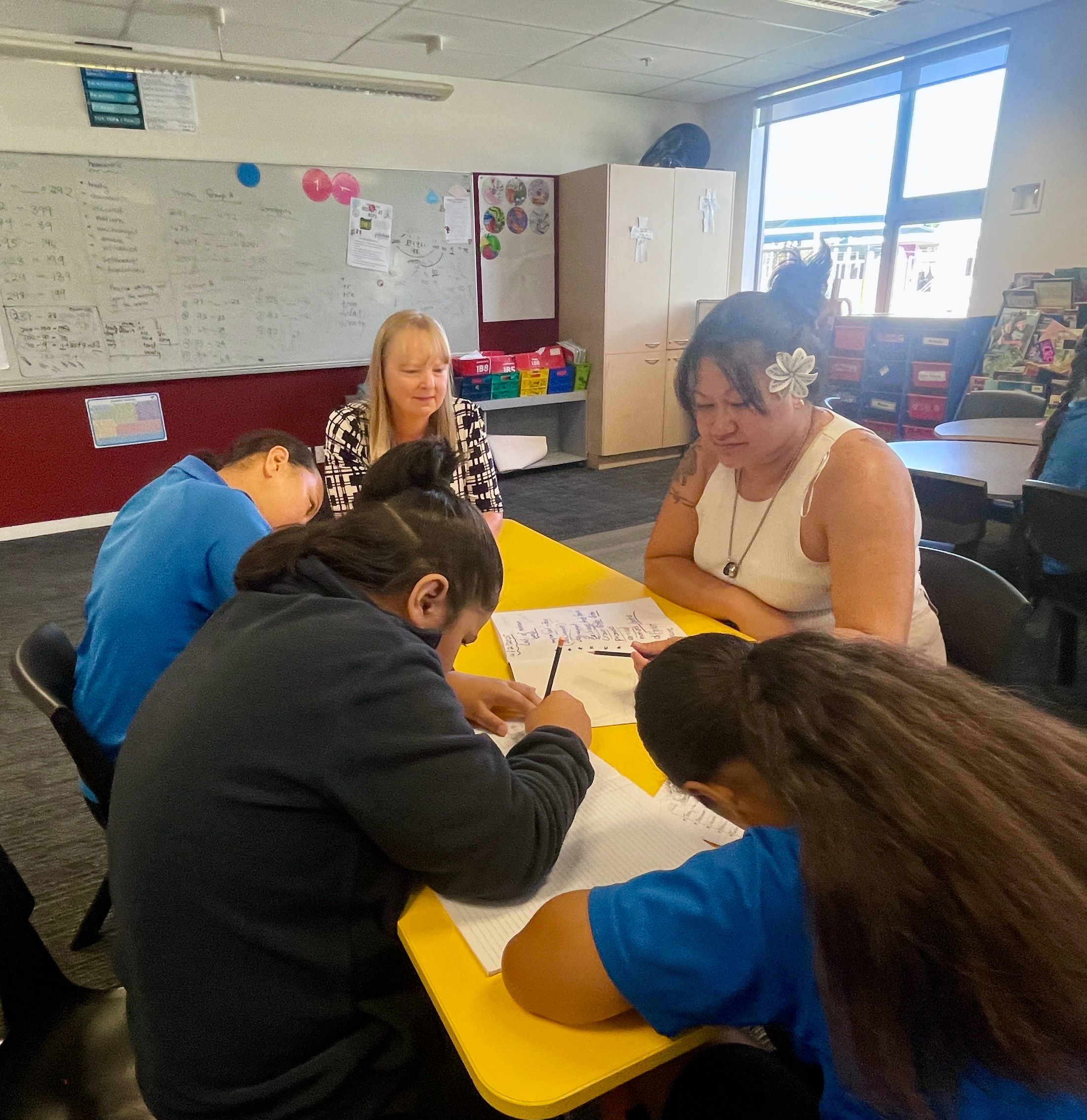
“I’m highly confident that we will be able to do that, but it’s not a bottomless pot," Māngere East School's Principal Stephanie Anich shared/Photo/Māngere East School.
The ministry also funds Pacific Bilingual and Immersion Education PLD, which supports schools offering Pacific bilingual education, and other Pacific-focussed PLD initiatives like Tapasā, Tautai o le Moana, and Reo Moana PLD.
Cleaver said the ministry is implementing various initiatives to improve literacy and maths progress and achievement outcomes for all learners, including Pacific students.
“This includes embedding a knowledge-rich curriculum and structured approaches to teaching literacy and maths, as well as introducing related PLD supports for teachers and leaders and accelerative supports for learners,” Cleaver said.
The office of the Minister of Education declined to comment as it was an operational matter. The Ministry for Pacific Peoples also declined to comment, referring inquiries to the Ministry of Education.
Click here for Part 1 of this story.